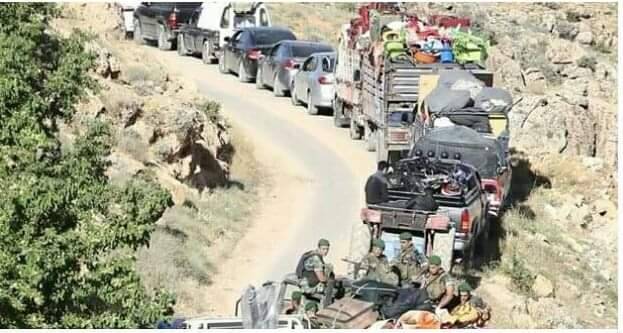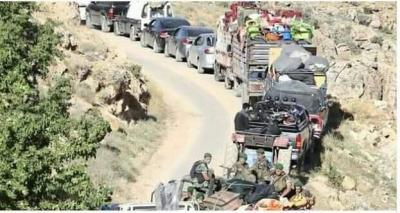The situation between the Lebanese government and international organizations, particularly the UN Refugee Agency and others concerned with the Syrian displacement issue, has never reached the severity it has today. There is a strong objection to the agency’s performance, along with accusations of a lack of transparency for refusing to grant the relevant ministries data related to hundreds of thousands of Syrian refugees who have spread across all Lebanese regions since 2011.
A well-informed Lebanese diplomatic source indicates that the "Refugee Commission refuses to provide Lebanon with lists that specify who benefits from aid and who frequently moves between Lebanese and Syrian territories, which should negate their status as displaced persons and stop their financial assistance based on being displaced in Lebanon." The source notes that "there are many unanswered questions regarding the commission’s operations and the organizations involved, as it appears that there is a network of interests pushing to maintain the status quo."
The source adds, in a statement to "Asharq Al-Awsat": "It is our right, as well as the right of donor countries, to have transparency in operations—to determine how funds and assistance are allocated and to whom. The displacement crisis has been ongoing for 11 years, and we are still stagnant; meanwhile, the economic situation in Lebanon continues to deteriorate. Marginalized groups are now competing for limited resources, with 80% of Lebanese living below the poverty line competing with Syrian refugees and Palestinian migrants for basic living necessities. Ironically, in hospitals, for instance, the priority has become for Syrians because their bills are paid in dollars, while Lebanese citizens are treated as second-class citizens in their own country, which is unacceptable."
The source emphasizes that "maintaining the status quo not only threatens an explosion in Lebanon but also poses a significant risk of a major explosion in Europe, where boats of migrants arrive." He points out that "a roadmap for voluntary return must be established quickly, allowing some refugees to relocate to third countries if they wish." He adds, "We still extend our hand and invite the commission and relevant entities to cooperate, but if we reach a dead end, we have many options. We are not a weak country, and we will handle the issue as surrounding countries that host Syrian refugees do, while adhering to internationally established standards."
The Refugee Commission in Lebanon avoids responding to these threats or engaging in disputes with the "Foreign Ministry" or other ministries. Lisa Abu Khaled, the commission's spokesperson, merely emphasizes the need to "support Lebanon in proportion to the responsibility it bears as it has been, for over a decade, the country hosting the largest number of refugees in the world relative to its population." According to Abu Khaled, the commission "welcomes any collaboration and constructive dialogue with the Lebanese government to address the difficult humanitarian situation faced by both Lebanese and refugees," stating in a message to "Asharq Al-Awsat" that "the commission's primary and final goal remains the protection of the most vulnerable, including refugees and host communities."




